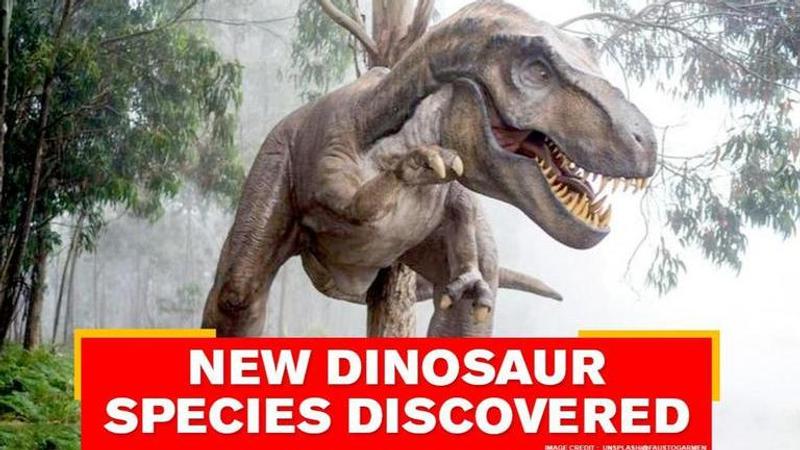Published 12:43 IST, August 13th 2020
New species of dinosaur related to Tyrannosaurus rex discovered on the Isle of Wight
A study conducted by Palaeontologists at the University of Southampton suggests that four bones found on the Isle of Wight belong to a new species of dinosaurs.

A new study conducted by Palaeontologists at the University of Southampton suggests that four bones found on the Isle of Wight belong to a new species of theropod dinosaur, the same family as Tyrannosaurus rex and modern-day birds. The newly discovered dinosaur, which has been named Vectaerovenator inopinatus, lived in the Cretaceous period, 115 million years ago, and is estimated to have been up to four metres long. The name of the dinosaur refers to the large air spaces found in the bones, which is one of the traits that helped the scientists recognize its theropod origins.
These bones, discovered last year on the foreshore at Shanklin, are from the neck, back and tail of the new dinosaur. The air sacs, also seen in modern birds, were extensions of the lung and likely helped fuel an efficient breathing system while also making the skeleton lighter.
The fossils of the species of dinosaur-era were discovered in three separate studies in 2019, two by individuals and one by a family group, who all handed in their finds to the Dinosaur Isle Museum at Sandown, where they are being displayed. Robin Ward, a regular fossil hunter was visiting the Isle of Wight with his family when they made their discovery.
Speaking about the discovery, Ward reportedly said that the joy of finding the bones they found was absolutely fantastic. James Lockyer, from Spalding, Lincolnshire, also visited the island when he discovered another of the bones. Speaking of the finding, Lockyer reportedly said that it looked different from marine reptile vertebrae that he has seen in the past.
He also added that he was searching a particular spot at Shanklin and was informed that he wouldn’t find much there. However, Lockyer said that he always makes sure to search other areas that other people don’t. Paul Farrell, from Ryde, who also made the discovery, reportedly said that he was walking along the beach, and came across what looked like a bone from a dinosaur. He added that he was really shocked to find out it could be a new species.
Researchers suggest that dinosaur had delicate skeleton
Chris Barker, who led the study, reportedly said that they were struck by just how hollow this animal was - it's riddled with air spaces. He also added that parts of its skeleton must have been delicate. Expressing happiness over the new discovery, Barker also added that the record of theropod dinosaurs from the mid Cretaceous period isn't that great, so it's been really exciting to be able to increase their understanding of the diversity of dinosaur species. The scientific study confirmed that the discoveries are likely to be from the same individual dinosaur, with the exact location and timing of the findings added to this belief. The findings will be published in the journal Papers in Palaeontology.
(Image credit: Unsplash | @faustogarmen)
Updated 12:43 IST, August 13th 2020




